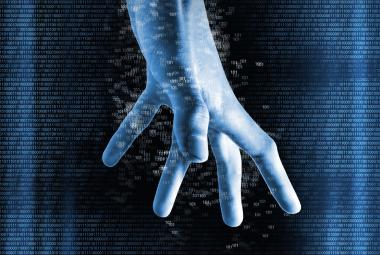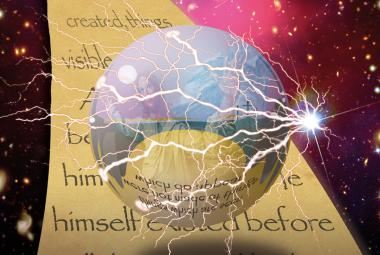Why do we care about privacy anyway? If we have “nothing to hide,” why worry?
We live in a world where almost everything is recorded in one way or another. Computers, cameras, and relentless recordkeeping turn our lives into a living novel that can be read by anyone—without even a search warrant in many cases.
Why Worry?
Why do we care about privacy anyway? If we have “nothing to hide,” why worry? If you believe the government, private businesses, and criminals all have your best interests in mind, you are correct, you have nothing to hide. But, if you hold the belief that I do, which is that government, private businesses, and criminals are only looking out for themselves, I have everything to hide—my information is mine, not theirs, and I plan to do everything in my power to keep what is mine private.
Privacy is not a new issue; people have struggled against authorities in many different ways over the centuries:
- The Puritans had a “spy on your neighbor” policy and often would not allow people to live alone. These policies were instituted to rid their communities of sin.
- The Census Bureau started in this country in 1790, which required every household be visited and the number of people be accounted for.
- Privacy concerns brought about the Bill of Rights enacted in 1791, ensuring that people could be secure in their person, houses, papers and effects.
- In 1928 the Supreme Court ruled that interception of electronic conversations was legal (later overturned by the Katz decision in 1967).
- Social Security numbers started to be assigned in 1936, giving each citizen a number by which to be tracked.
Gathering Information Today
Information gathering in this day and age has reached a whole new level and, in many ways, has become much easier. Entire businesses revolve around gathering information about you. The purpose is generally to effectively market goods and services to you, or to provide “better” service.
Think for a minute about the information that is readily available to both public and private officials. Your age, weight, height, hair color, income, marital status, medical issues, place of residence, assets owned, where you bank, what church you attend, products you purchase, interests, hobbies, etc. Our lives are literally on display.
History reveals to us that the Germans, during the ’30s and ’40s, were meticulous record keepers. They had over 16 miles of shelves filled with documents. This recordkeeping regime ultimately ended in the death of millions of innocent people. We can only guess how our private information will be used to categorize, marginalize or used punitively against us in the future. Our defense is to actively limit the information we freely give out.
We cannot prevent a lot of this information from getting out, but there are some steps we can take to limit it. Let’s review a few ways to increase the level of privacy in our lives.
Keeping It Private
Facebook — Facebook is arguably the best intelligence-gathering invention in modern history! People willingly divulge almost everything about themselves to large groups of people. Tests have been run that are 90% accurate in determining race, IQ, sexuality, substance use, personality, political affiliation, religious views, and more—based solely on items the users “LIKED.”[1]
Facebook can be a fun and convenient way to stay in touch with friends and family, but we need to be smart about it. Do not post information that you would not want everyone to know. If you are posting something that you would not want displayed in a public place, don’t post it. Limit the amount of private information you give out.
Searches — I suggest using a search engine such as StartPage.com. This search engine can never fulfill the government’s request for your search data because they do not store any of it! (unlike Google, which stores everything and willingly turns information over to the government).
Browsing history — Your web browser automatically keeps a list of all the websites you visit. This can be turned off in all modern browsers. Unless you personally need a record of this, why store it? One major step we can take to protect our privacy is to limit any or all superfluous data about us or our habits, no matter how benign.
Passwords — We use passwords to protect sensitive data, and yet I am amazed at how many passwords are kept on a sticky note on the computer screen! Everyone needs to create passwords that cannot easily be guessed. Most people use simple passwords so they can remember them, but a complicated password can be easy to remember as well, simply by using acronyms.
Let me give you an example. fGsltw316(fav)—that password contains all the elements of a good password—lowercase and uppercase letters, numbers and symbols, and it is easy to remember! I will decode it for you: The first part is “for God so loved the world,” which can be found in John “316” and it is my favorite verse “(fav).” Create your own password(s) and then check them[2] to see if they pass muster.
Email — Email is easy to filter, copy and misdirect and should never be used for sensitive or private information unless encrypted. Most of society does not encrypt email. I suggest you spend some time learning how encryption software works, so when the need arises to send sensitive information via email, you will be able to do so with some level of confidence that it will remain private. Look for PGP or GPG for encryption solutions.
Encryption — As stated above, all sensitive data should be encrypted. Not only during delivery, but when stored as well. PGP or GPG (free version) software is fairly easy to use.
Phone Calls — When talking on the phone, do not say anything that you would not say if there was a government official standing in the room. Phone calls are not private and can be easily recorded or filtered for keywords without your knowledge.
Cameras — they are everywhere! It was the plethora of private video cameras that helped identify and apprehend those responsible for the Boston massacre. While we are thankful that those cameras existed for that incident, it does reveal how much we are under constant surveillance.
Paperwork — this old-fashioned way of data storage is one of the most private methods. It cannot be accessed remotely and is relatively safe from unauthorized access, especially if stored properly.
Just Say “No Thank You”
Just because someone asks for some information does not mean you are obligated to give it to them. Businesses, doctors, police officers and government officials all ask questions that you do not have to answer. If you feel the information is private, simply ask “why do you ask?” or “must I give you that information?”
I have often been told, “No, it’s just a question here on our form, but you do not need to answer if you do not want to.” It is better to refuse to answer questions than to lie.
We often chide the ACLU for their protection of immoral activities in this country, but they also have some good information about speaking to law enforcement (or other officials). I would encourage you to read this document on their website: https://www.aclu.org/files/kyr/kyr_english.pdf
With this brief introduction, I hope you are a bit more sensitive concerning the information you freely give out and that from this day forward, you consider your information to be sacred. I want you to be guarded, but not paranoid. Remember, In God we Trust—all others are suspect!






